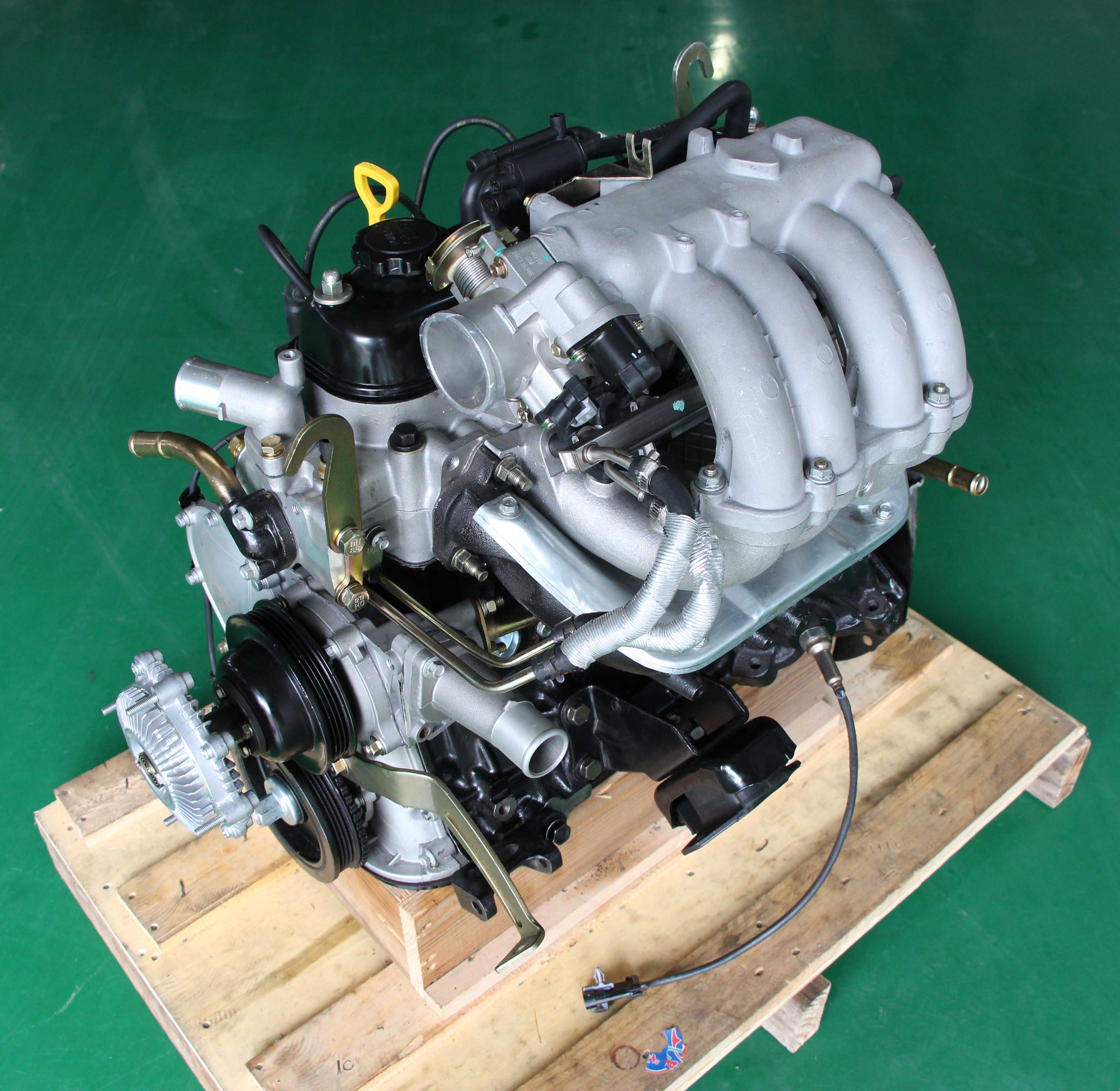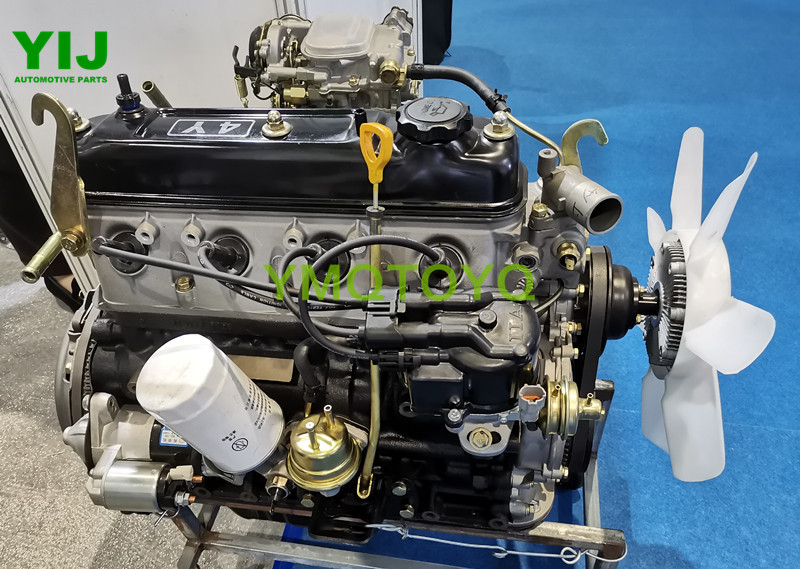Exploring the Different Kinds Of Engine: Which One Fits Your Demands?
Inner burning engines continue to control due to their integrity, while electrical engines are acquiring traction for their sustainability. Crossbreed engines provide a versatile concession, and diesel engines stand out for their power in demanding applications.

Interior Combustion Engines
Inner combustion engines (ICEs) are the backbone of modern-day transportation, powering a vast selection of automobiles from automobiles to airplanes. These engines operate the principle of converting gas right into power through a collection of controlled surges within a combustion chamber. One of the most usual kinds of ICEs include gas engines, diesel engines, and rotating engines, each created to meet certain performance and effectiveness needs.
Gas engines usually utilize trigger ignition, while diesel engines rely upon compression ignition, resulting in distinctive distinctions in gas efficiency and power outcome (4y engine). Rotating engines, or Wankel engines, provide a portable design and smooth procedure, yet are less frequently used in mainstream applications
ICEs have undergone significant advancements in technology, including the introduction of turbocharging and gas shot systems, which boost total performance and efficiency. Regardless of their efficiency renovations, ICEs encounter raising analysis due to their ecological effect, specifically pertaining to greenhouse gas exhausts.
Electric Engines
As problems concerning environmental sustainability and fossil fuel dependency expand, electrical engines have emerged as an engaging choice to interior combustion engines. These engines utilize electrical motors powered by batteries or gas cells, supplying a cleaner and a lot more effective motive powers.
Among the main advantages of electric engines is their reduced exhausts. Unlike typical engines that burn nonrenewable fuel sources, electrical engines create zero tailpipe exhausts, dramatically reducing air pollution and adding to boosted public health. In addition, the effectiveness of electric motors usually exceeds that of internal burning engines, converting a greater percentage of power from the power resource into useful energy for activity.
Electric engines are likewise notable for their peaceful operation, making them excellent for metropolitan settings. 4y engine. The simplicity of their design results in less moving components, which can result in lowered maintenance expenses and increased dependability over time
Nevertheless, obstacles remain, consisting of battery manufacturing effects, billing infrastructure, and variety restrictions. Regardless of these hurdles, the expanding financial investment in electric car modern technology and renewable resource resources factors toward an encouraging future for electrical engines, positioned to play a critical role in the shift towards sustainable transportation.
Crossbreed Engines
Mixing the benefits of both electric and conventional inner burning engines, hybrid engines represent a versatile service in the mission for reliable and lasting transportation. These engines combine a gasoline or diesel engine with an electrical motor, permitting improved fuel effectiveness and minimized exhausts contrasted to standard lorries.
Hybrid engines operate in numerous modes, utilizing the electric motor for low-speed driving and the internal combustion engine for higher speeds or when more power is needed. This vibrant procedure not just boosts gas economy but also adds to a smoother driving experience. Regenerative braking is another crucial feature, capturing energy generally lost during stopping and rerouting it to reenergize the battery.

As customers progressively prioritize informative post eco-friendliness, crossbreed engines stick out as a functional choice, supplying a reliable balance of efficiency, effectiveness, and environmental responsibility. This versatility makes them suitable for city commuting and long-distance traveling alike.
Diesel Engines
Performance and power are trademarks of diesel engines, which have actually long been preferred for their toughness and fuel economic climate. These engines operate the concept of compression ignition, where air is compressed to view website a high temperature level before gas is injected, sparking it without the need for ignition system. This process allows diesel engines to accomplish greater thermal effectiveness contrasted to gasoline engines, converting into far better fuel gas mileage and reduced carbon dioxide exhausts.
Diesel engines are particularly fit for heavy-duty applications such as trucks, buses, and commercial machinery, where torque and toughness are paramount. Their layout generally consists of more powerful components to endure the greater stress created throughout operation, resulting in longer life span and minimized upkeep prices.

Different Fuel Engines
While diesel engines have lengthy controlled the landscape of durable source of power, alternative gas engines are getting traction as viable alternatives for an extra sustainable future. These engines utilize a variety of gas, such as compressed natural gas (CNG), ethanol, hydrogen, and propane, aiming to decrease greenhouse gas emissions and dependence on fossil fuels.
One significant benefit of alternate fuel engines is their possible to lower carbon impacts. As an example, CNG engines release fewer toxins compared to traditional diesel motor, making them appropriate for urban transportation systems and fleets seeking to boost air high quality. Ethanol, originated from biomass, not only minimizes exhausts however additionally supports farming economies.
Hydrogen gas cells represent an innovative development in this realm, supplying zero-emission power through a chain reaction in between hydrogen and oxygen. Difficulties such as framework development and production prices remain obstacles to extensive fostering.
Conclusion
In final thought, picking the appropriate engine type requires cautious factor to consider of particular requirements and choices. Inner combustion engines provide dependability, while electrical engines focus on sustainability and reduced maintenance. Crossbreed engines combine the benefits of both, enhancing performance, whereas diesel engines offer remarkable power and torque for sturdy applications. Alternative fuel engines present environment-friendly alternatives, albeit with possible framework obstacles. Inevitably, a thorough analysis of driving behaviors and ecological worths will certainly promote an educated choice relating to engine choice.
Crossbreed engines provide a functional compromise, and diesel engines stand out for their power in requiring applications. The most common types of ICEs include gasoline engines, diesel engines, and rotary engines, each developed to satisfy particular performance and performance demands.
Unlike typical engines that shed fossil fuels, electrical check over here engines create no tailpipe emissions, significantly decreasing air contamination and contributing to boosted public health and wellness.Hybrid engines run in several settings, using the electric motor for low-speed driving and the inner combustion engine for higher rates or when more power is required. Hybrid engines incorporate the advantages of both, enhancing effectiveness, whereas diesel engines offer superior power and torque for durable applications.